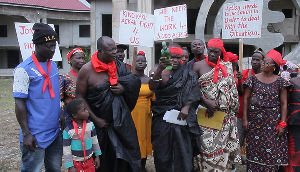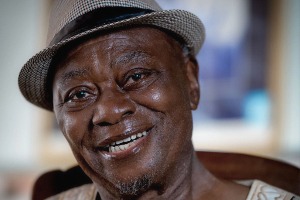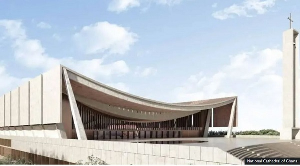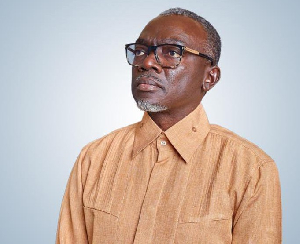The Nzema Kotoko Traditional Area has expressed opposition to the Ghanaian government's proposed $60 billion petroleum hub project in their region, citing concerns over land ownership, compensation, and environmental impact.
The project, announced by the Ministry of Energy, involves the allocation of approximately 20,000 acres of land in the Jomoro area for the construction of the hub.
However, traditional leaders in the area, led by Nana Minlah Kpanyinli III, have raised questions about the legitimacy of the project.
They claim that the Ministry of Energy did not acquire the land from the rightful owners, specifically the King of the Awiaso-Nzema traditional area, Awulae Kaku Ackah Ill, but instead dealt solely with the Omanhene of Western Nzema, Awulae Annor Adjaye II.
The traditional leaders are seeking clarification on the land ownership and compensation issues, as well as assurances about the project's environmental sustainability.
"Our investigations subsequently revealed that the government indeed had no hand in the creation of the purported Petroleum Hub. This means it is a bunch of private individuals who have come together to prosecute the deal in the Nzema area."
The operating company, which has already made the Omanhene of Western Nzema the chairman of its board of directors, has not purchased any piece or parcel of land from the landowners," he said.
The traditional leaders pointed out that Ghana's land law stipulates that only those in possession of the land have the authority to dispose of it, rendering the government's claim of acquiring 20,000 acres of land invalid.
They also raised concerns about the lack of transparency in the land valuation process and the potential environmental risks associated with the project.
Furthermore, they expressed skepticism about the purported USD 60 billion investment, given the Ghanaian government's challenges in securing a significantly smaller loan from the International Monetary Fund (IMF).
"Considering that the project is a huge one, supposed to attract an investment to the tune of about USD 60 billion, what sort of information, education, or alertness has been given to the people of Nzemaland?" they queried.
The traditional leaders reaffirmed that they have not relinquished their allodial ownership of Nzemaland to any entity, and thus, any attempts to acquire their land without their consent will be met with resistance.
They also expressed criticism towards Awulae Annor Adjaye, alleging that he has shown disregard for the land and its people by readily offering it to outsiders for personal benefit.
The leaders emphasized that the Nzema people have a rich history of courage, resilience, and wisdom and will therefore vigorously defend their lands.
However, they indicated a willingness to consider releasing the 20,000 acres in phases, provided that their rights and interests are respected.
"If the government asks for, say, 20,000 acres of land, we will release it in phases depending on how acceptable the terms are and how profitable the deal would be to our people and to our environment. Anything short of this would be resisted, even if all of us would end up in prison or be killed," they said.
Regional News of Thursday, 8 August 2024
Source: Joseph Marfo, Contributor

















